Amyotrophic Lateral Sclerosis (ALS) is a devastating neurodegenerative disease that affects approximately 1 in 400 adults in their lifetime. Given the severity of the illness and the lack of conventional cures, many patients and their families turn to integrative and holistic approaches to manage symptoms and improve quality of life. This article explores the supportive role of nature in healing ALS, from nutritional support and gut health to detoxification and integrative therapies.
Key Takeaways
- Integrative therapies, including vitamins and herbs, are often sought by ALS patients to complement conventional treatments.
- Optimal gut health may help reduce inflammation and improve nutrient absorption, potentially slowing ALS progression.
- Functional medicine emphasizes the importance of addressing nutrient deficiencies and supporting cellular health to manage ALS symptoms.
- Detoxification strategies aim to reduce oxidative stress by supporting the body’s natural detox pathways.
- Natural remedies, such as herbal supplements and fruit polyphenols, show promise in supporting ALS treatment and improving patients’ quality of life.
The Emotional Journey of Living with ALS
Coping with Diagnosis
Receiving an ALS diagnosis is a moment that changes everything. The initial shock can be overwhelming, and it’s natural to feel a whirlwind of emotions. Finding peace amidst the chaos is crucial. Many find solace in nature, where the simple act of being outside can bring a new level of calm and clarity. This connection to the outdoors can serve as a bridge between the life you knew and the new reality you’re facing.
Finding Strength in Community
Living with ALS can feel isolating, but you are not alone. Building a support network is essential. Whether it’s family, friends, or support groups, having people who understand and share your journey can make a world of difference. These connections can provide emotional support, practical advice, and a sense of belonging. Remember, it’s okay to lean on others and accept help when needed.
Mental Health Support
The emotional toll of ALS is significant, and taking care of your mental health is just as important as managing physical symptoms. Professional counseling, therapy, and support groups can offer a safe space to express your feelings and fears. Mindfulness practices, such as meditation and deep breathing, can also help in managing stress and anxiety. Prioritizing your mental well-being can lead to a more balanced and fulfilling life, even in the face of ALS.
ALS may change your physical capabilities, but it can also strengthen your resolve to live as fully and happily as possible. Embrace the journey with courage and seek out the support that helps you thrive.
Nutritional Support: Fueling the Fight Against ALS

Essential Vitamins and Minerals
When battling ALS, ensuring you get the right vitamins and minerals is crucial. Essential nutrients like omega-3 fatty acids, CoQ10, and vitamins C and E can help promote cellular health and support neurological function. These nutrients aim to reduce oxidative stress and address nutrient deficiencies commonly observed in ALS patients.
The Role of Antioxidants
Antioxidants play a significant role in managing ALS. They help combat oxidative stress, which is a major contributor to the progression of the disease. Incorporating antioxidants such as glutathione and alpha-lipoic acid into your diet can provide much-needed support to your body’s defense mechanisms.
Hydration and Its Impact
Hydration is often overlooked but is incredibly important for ALS patients. Staying well-hydrated can improve overall nutritional status and may even be more crucial than nutrient intake alone. Proper hydration helps maintain cellular function and can significantly impact your quality of life.
By focusing on these nutritional strategies, you can create a supportive environment that aids in managing ALS symptoms and improving your overall well-being.

Gut Health: The Hidden Key to ALS Management

Living with ALS is a challenging journey, but understanding the role of gut health can offer a new avenue for managing symptoms. Optimizing gut health can potentially slow down the progression of ALS by reducing inflammation and improving overall immune function. This section explores how you can support your gut health through various strategies.
Probiotics and Prebiotics
Probiotics and prebiotics are essential for maintaining a healthy gut microbiome. Probiotics are beneficial bacteria that help balance your gut flora, while prebiotics are fibers that feed these good bacteria. Incorporating both into your diet can help reduce inflammation and support your immune system.
Dietary Fiber for Gut Health
Dietary fiber is crucial for gut health. It helps maintain regular bowel movements and supports a healthy gut microbiome. Foods rich in dietary fiber include fruits, vegetables, and whole grains. By including these in your diet, you can help reduce inflammation and improve nutrient absorption.
Reducing Inflammation Through Diet
Chronic inflammation is a significant concern for ALS patients. A diet rich in anti-inflammatory foods can help manage this. Foods like fatty fish, nuts, and leafy greens are excellent choices. By reducing inflammation, you can potentially slow down the progression of ALS and improve your overall quality of life.
The psychology of nature: how forest bathing benefits the mind. Explore the therapeutic powers of the forest, reducing stress, boosting mood, and nurturing the immune system.
Detoxification: Clearing the Path for Healing
Detoxification is a crucial aspect of managing ALS, as it helps reduce the burden of toxins and supports optimal cellular function. By enhancing the body’s ability to eliminate toxins, detoxification approaches may help reduce the oxidative damage that contributes to ALS progression. This process involves a combination of targeted nutrient supplementation, dietary modifications, and lifestyle changes.
Understanding Oxidative Stress
Oxidative stress occurs when there is an imbalance between the production of harmful reactive oxygen species (ROS) and the body’s ability to neutralize them. In ALS, this imbalance can exacerbate the disease’s progression. Detoxification strategies aim to support the body’s natural detoxification pathways, potentially reducing the burden of toxins that contribute to oxidative stress.
Natural Detoxification Strategies
Implementing natural detoxification strategies can be a powerful way to support your body’s health. These strategies include:
- Dietary modifications: Incorporating antioxidant-rich foods and reducing exposure to environmental toxins.
- Targeted nutrient supplementation: Using specific vitamins and minerals to support detox pathways.
- Lifestyle changes: Engaging in stress management techniques and mind-body practices like Forest Bathing.
Supporting the Body’s Detox Pathways
Supporting your body’s detox pathways is essential for maintaining overall health. This can be achieved through:
- Hydration: Ensuring adequate water intake to help flush out toxins.
- Exercise: Promoting circulation and sweating to aid in toxin elimination.
- Gut health: Maintaining a healthy gut microbiome to support detoxification processes.
Detoxification protocols, including strategies like targeted nutrient supplementation, dietary modifications, and lifestyle changes, aim to support the body’s natural detoxification mechanisms, potentially reducing the burden of toxins and supporting optimal cellular function.
Integrative Therapies: A Holistic Approach to ALS

Integrative therapies offer a holistic approach to managing ALS, combining conventional and alternative treatments to address the multifaceted needs of patients. This approach not only aims to enhance the effectiveness of traditional medical interventions but also seeks to mitigate potential side effects, providing a more comprehensive care plan.
Combining Conventional and Alternative Treatments
By integrating pharmaceutical treatments with complementary therapies such as nutritional support, physical therapy, acupuncture, and massage therapy, you can create a personalized treatment plan that caters to your unique needs. This collaborative approach often involves working with interdisciplinary teams to explore nature-based therapies, enhancing holistic wellness through customized forest bathing sessions and collaborative research opportunities.
The Benefits of Physical Therapy
Physical therapy plays a crucial role in maintaining muscle function and mobility for ALS patients. Tailored exercise programs can help maintain range of motion, prevent muscle wasting, and promote overall physical well-being. Mild to moderate exercise has been shown to offer benefits, while intense exercise may be harmful, making it essential to customize the regimen to individual abilities.
Acupuncture and Massage Therapy
Acupuncture and massage therapy can provide significant relief from symptoms and improve quality of life. These therapies can help manage pain, reduce stress, and enhance emotional well-being. Incorporating these treatments into your care plan can offer a more balanced and supportive approach to managing ALS.
Embracing integrative therapies allows you to take a proactive role in your health journey, combining the best of conventional and alternative treatments to create a supportive and effective care plan.
Functional Medicine: Addressing the Root Causes of ALS
Nutrient Deficiencies and Absorption
Functional medicine delves into the intricate web of factors contributing to ALS, with a significant focus on nutrient deficiencies and absorption issues. Identifying and correcting these deficiencies can be pivotal in managing ALS symptoms. Functional medicine practitioners often recommend comprehensive nutritional assessments to tailor dietary plans that ensure optimal nutrient intake.
Cellular Health and Neurological Function
The health of your cells is paramount in the fight against ALS. Functional medicine emphasizes the importance of cellular health and its direct impact on neurological function. By addressing mitochondrial dysfunction and oxidative stress, functional medicine aims to enhance cellular energy production and protect neurons from damage.
Personalized Treatment Plans
Every individual’s journey with ALS is unique, and functional medicine recognizes this by creating personalized treatment plans. These plans integrate conventional medical treatments with alternative therapies, such as nutritional support, physical therapy, and acupuncture. The goal is to develop a holistic approach that addresses the root causes of ALS and supports overall well-being.
Embracing functional medicine means looking beyond symptoms and understanding the underlying imbalances that contribute to ALS. This comprehensive approach offers hope and a path toward improved quality of life.
Nature’s Healing Power: Embracing Natural Remedies

Herbal Supplements for ALS
When facing ALS, nature offers a treasure trove of herbal supplements that can provide comfort and support. From the calming effects of lemon balm to the immune-boosting properties of elderberry, these natural remedies can be a beacon of hope. Consider incorporating these herbs into your daily routine to help manage symptoms and improve overall well-being.
The Promise of Fruit Polyphenols
Fruit polyphenols, found abundantly in berries and other fruits, are powerful antioxidants that can help combat oxidative stress. Including a variety of colorful fruits in your diet can not only enhance your nutritional intake but also provide a natural defense against the progression of ALS. Embrace the vibrant world of fruits to support your body’s fight against this challenging condition.
CBD and Its Potential Benefits
CBD, derived from the hemp plant, has shown promise in alleviating some symptoms associated with ALS. Its anti-inflammatory and neuroprotective properties can offer relief from pain and muscle spasms. Exploring CBD as a complementary therapy might bring a new level of comfort and peace to your journey with ALS.
Embracing natural remedies can be a powerful step in your journey with ALS, offering not just physical relief but also emotional solace. Just as columnist Juliet Taylor and her late husband, Jeff, always found solace outdoors — especially after Jeff was diagnosed with ALS, you too can find peace and perspective in nature’s supportive environment.
Discover the incredible healing power of nature with our comprehensive forest bathing program. Learn how to reduce stress, enhance your well-being, and reconnect with the environment through scientifically proven techniques. Don’t miss out on this transformative experience. Visit our website to enroll now and start your journey to a healthier and happier life!
Conclusion
In the face of ALS, a disease that challenges the very essence of human resilience, the integration of nature’s supportive environment offers a beacon of hope. By embracing functional and integrative medicine, we not only address the physical manifestations of ALS but also nurture the mental and emotional well-being of patients. The holistic approach, encompassing nutritional support, gut health optimization, and detoxification, provides a multifaceted strategy to combat the progression of ALS. While the journey is undeniably arduous, the promise of these natural interventions brings a glimmer of light to those affected. Together, through compassion, innovation, and the healing power of nature, we can strive to improve the quality of life for ALS patients and their families.
Frequently Asked Questions
What is ALS and how does it affect the body?
Amyotrophic Lateral Sclerosis (ALS) is a progressive neurodegenerative disease that affects nerve cells in the brain and spinal cord. It leads to muscle weakness, loss of motor control, and eventually, paralysis.
Can nutritional support help in managing ALS symptoms?
Yes, nutritional support, including essential vitamins, minerals, and antioxidants, can help manage ALS symptoms by promoting cellular health, reducing oxidative stress, and supporting neurological function.
How does gut health impact ALS progression?
Research suggests that gut health may influence ALS progression. Optimizing gut health through probiotics, prebiotics, and dietary fiber can support a healthy gut microbiome, reduce inflammation, and improve nutrient absorption.
What are some natural detoxification strategies for ALS patients?
Natural detoxification strategies for ALS patients include supporting the body’s detox pathways through proper hydration, consuming antioxidant-rich foods, and using supplements like glutathione to reduce oxidative stress.
Are there integrative therapies that can benefit ALS patients?
Yes, integrative therapies such as physical therapy, acupuncture, and massage therapy can complement conventional treatments, helping to alleviate symptoms and improve the quality of life for ALS patients.
What role does functional medicine play in treating ALS?
Functional medicine addresses the root causes of ALS by focusing on nutrient deficiencies, cellular health, and personalized treatment plans. This holistic approach aims to improve overall health and slow disease progression.





